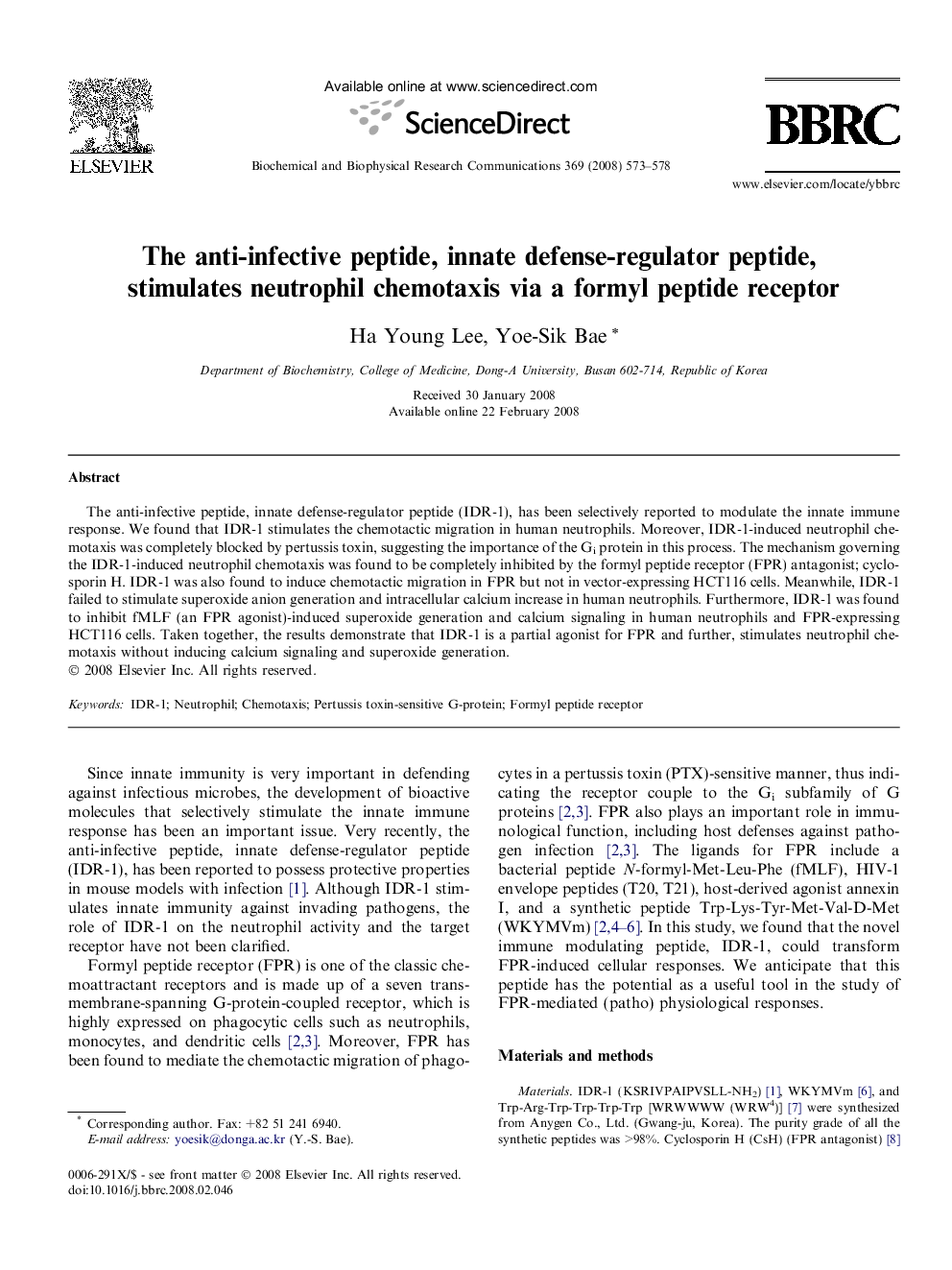| Article ID | Journal | Published Year | Pages | File Type |
|---|---|---|---|---|
| 1935930 | Biochemical and Biophysical Research Communications | 2008 | 6 Pages |
The anti-infective peptide, innate defense-regulator peptide (IDR-1), has been selectively reported to modulate the innate immune response. We found that IDR-1 stimulates the chemotactic migration in human neutrophils. Moreover, IDR-1-induced neutrophil chemotaxis was completely blocked by pertussis toxin, suggesting the importance of the Gi protein in this process. The mechanism governing the IDR-1-induced neutrophil chemotaxis was found to be completely inhibited by the formyl peptide receptor (FPR) antagonist; cyclosporin H. IDR-1 was also found to induce chemotactic migration in FPR but not in vector-expressing HCT116 cells. Meanwhile, IDR-1 failed to stimulate superoxide anion generation and intracellular calcium increase in human neutrophils. Furthermore, IDR-1 was found to inhibit fMLF (an FPR agonist)-induced superoxide generation and calcium signaling in human neutrophils and FPR-expressing HCT116 cells. Taken together, the results demonstrate that IDR-1 is a partial agonist for FPR and further, stimulates neutrophil chemotaxis without inducing calcium signaling and superoxide generation.
